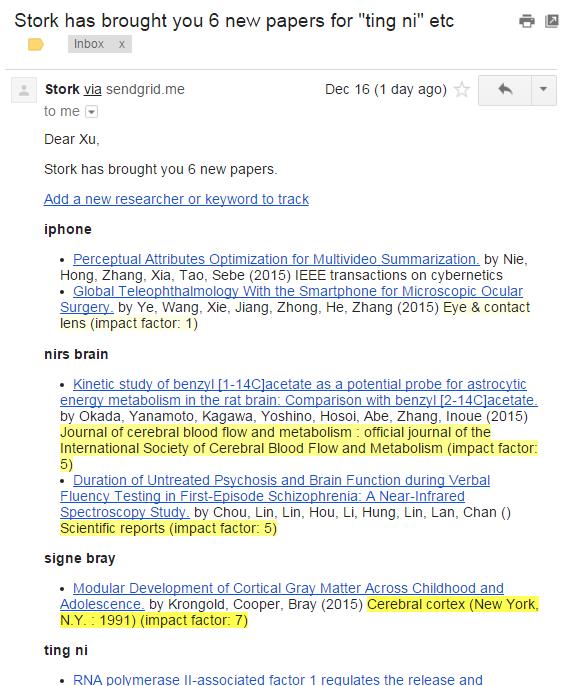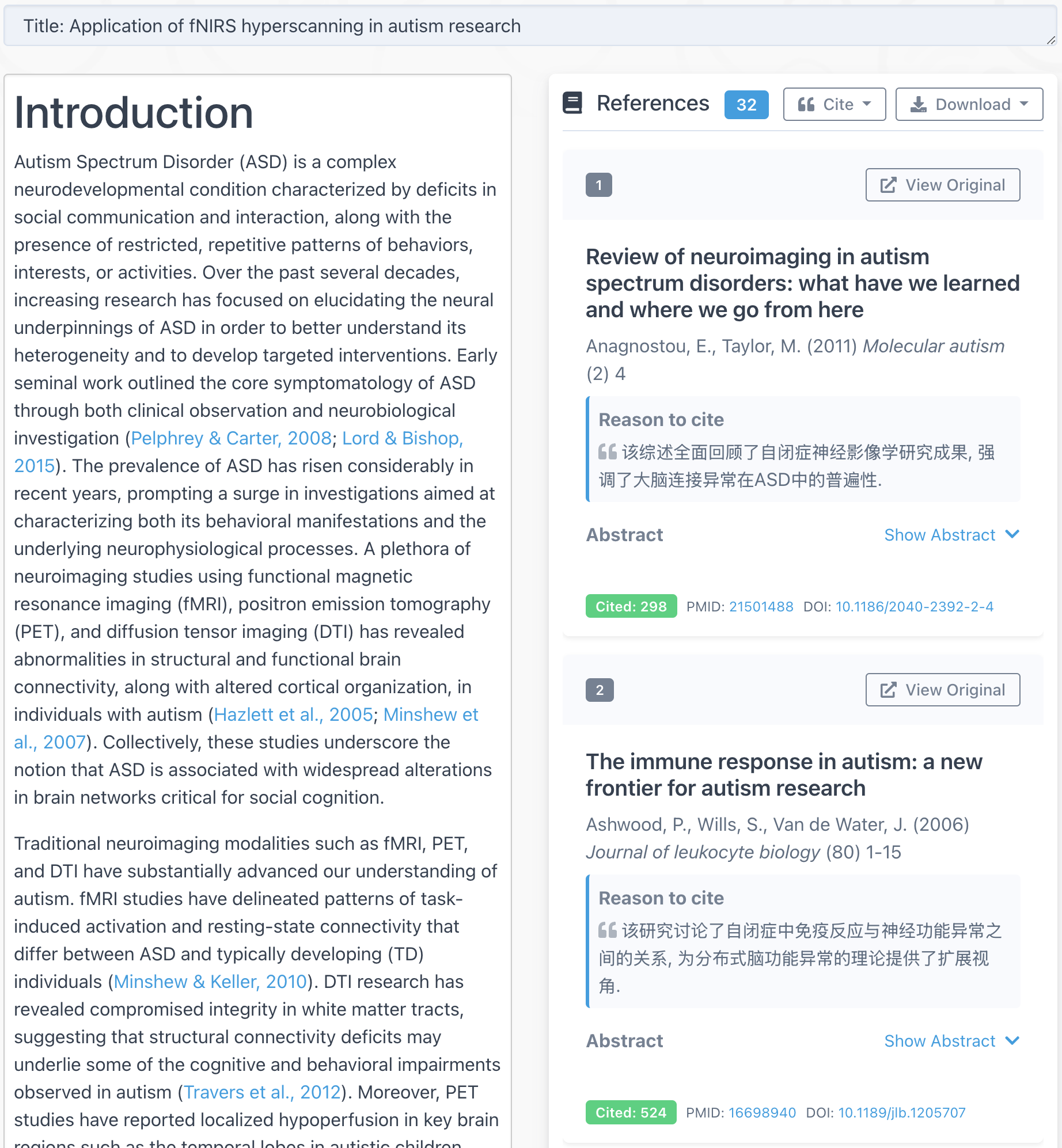
When I was a graduate student at Baylor College of Medicine, I found myself often in an embarrassing situation — I felt completely lost when my fellow graduate students heatedly discussed a paper in our field but I never heard of this publication at all. Later a PubMed search revealed that this paper was indeed published more than a year ago!
There was even a time when I didn’t know my own boss had a new publication. It was in part because I was in a big lab and I was not involved in that project. But still, I felt like I didn’t fulfill my duty as an up-to-date young researcher.
My problem was finally resolved several years later when we developed the Eye function in Paperbox, which is now renamed Stork. Stork is pretty easy to use. What I need to do is to simply enter all my keywords and researchers’ names and Stork takes care of everything. Stork will help me perform the search every day and send me the results. After using Stork, now I’m the first one in the lab to know that “The most renowned David Boas has a new publication” or “There’s another group using NIRS to hyperscan”. I never embarrass myself again and gain a lot of confidence.
I have more than 50 keywords. You may ask “will Stork send you 50 emails a day?” Not at all because Stork respects my inbox. It will compile all results into one email.
Stork is also smart. As a researcher, I am sometimes overwhelmed by the flood of publications and have headache in determining which ones are worth reading. Stork helps! She will mark the impact factor of each publication with the yellow color. The more yellow, the higher the impact factor. Therefore I only need to read top publications when I am busy.
If you also want to be the first one to know new publications in your field, why don’t you give Stork a try? I’m sure you’ll be delighted!
Below is one sample email Stork sent to me.

Below are some of the key words I’ve been using. Anyone work on NIRS and fMRI can borrow:
- (fumiko hoeft) AND ((university of california) OR stanford)
- (jian li) AND ((phelps) OR montague OR (Peking University psychology))
- baldwin Philip
- brooks king-casas
- cell[ta] fmri
- chao liu, beijing normal university
- chess stetson
- David Boas
- David Hong stanford
- dongni yang baylor
- eagleman dm [au] baylor
- fmri deception
- fmri resting state parent child
- hanli liu, university of texas
- Hosseini, S M Hadi
- hyperscanning
- iphone
- Jack Gallant
- Kendrick Kay
- koniku
- lumosity
- montague pr [au] baylor
- montague pr[au] Virginia Tech
- MyConnectome
- nature[ta] fmri
- ning gao, tsinghua
- nirs brain
- nirs deception
- nu zhang, washington
- pearl chiu
- reiss al [au] stanford
- rory sayres
- Russell Poldrack, stanford
- saggar manish
- science[ta] fmri
- signe bray
- smart phone brain
- social nirs
- stanford kesler shelli
- ting ni
- xianchun li, “East China Normal University”
- xiaolin zhou[au] peking
- xu cui AND (stanford OR baylor OR Texas)
- xu q[au] harvard
- yan song[au] stanford
- yangming wang, peking
- yufeng shen [au]
- yulong li (stanford or Peking)
- zen meditation
- zhu chao-zhe beijing



Is there a way to change the time of day at which the Stork message can be received?
@Kathy
Yes! In the setting page you can change the time.